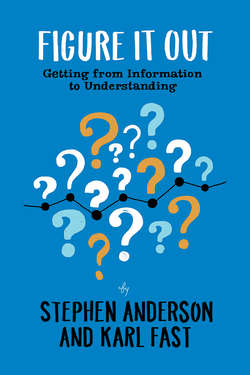Читать книгу Figure It Out - Stephen P. Anderson - Страница 52
На сайте Литреса книга снята с продажи.
Priming
ОглавлениеSuppose we’re talking about food and what you had for lunch yesterday. Then we ask you to fill in the “missing” letter in this word: SO_P. Go ahead. What’s the word? Chances are you’d say “SOUP.” If, however, we’re talking about hygiene, showers, and topics of cleanliness, and we ask you the same question, you’re more likely to complete the word as “SOAP.” Simple studies like this one are numerous.10 A specific suggestion influences what comes to mind. This is priming.
Priming is “the use of background factors to put someone in a psychological state that affects their actions without their conscious knowledge.” Magicians frequently use priming to “read people’s minds” when in reality they are planting ideas—often without our conscious awareness. Unlike metaphors, where we might stop and call out the metaphor being invoked, or use a word that conjures up a metaphor, priming is more subconscious, likely to go unnoticed by the person being “primed.” Like a metaphor, it’s still triggering a prior association; however, it’s not explicit, more likely to be suggestive than correlative, and probably separated by a bit of time (often minutes). (For our broader point, these distinctions are less important—these are all different forms of an associative pattern-matching process.)
As with our SO_P example, the most common examples of priming are rather directed, that is, we can trace back our primed actions to one or more background factors. A specific suggestion then influences what comes to mind. This makes sense. But research into priming has veered into even more interesting directions.
